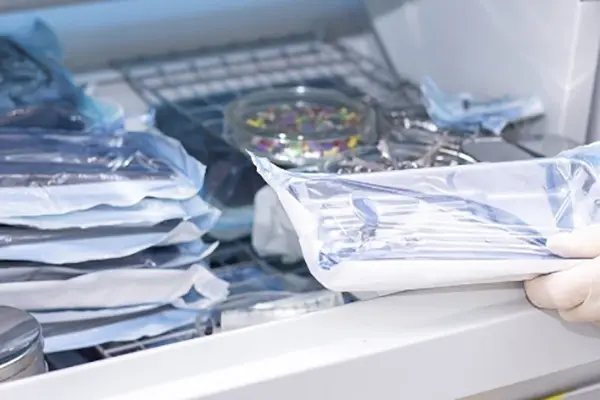Ensuring medical supplies’ safe and efficient transportation is critical in the healthcare industry. These supplies, which range from pharmaceuticals to delicate medical devices, require secure packaging solutions that protect them from contamination, damage, and degradation. One of the most effective ways to meet these challenges is through flexible packaging. Over recent years, flexible packaging has gained popularity in the medical supply chain due to its versatility, durability, and sustainability. This article will explore three key benefits of using flexible packaging for shipping medical supplies.
1. Enhanced Protection and Safety
One of the primary concerns when shipping medical supplies is ensuring their safety and integrity throughout the transportation process. Medical products are often sensitive to environmental factors such as moisture, light, air, and temperature changes. Flexible packaging offers excellent protection against these elements, ensuring that medical supplies arrive at their destination in perfect condition.
Barrier Protection
Flexible packaging materials, such as laminated films, foils, and multi-layer plastics, are designed to provide a strong barrier against external contaminants. This is particularly important for pharmaceuticals and sterile medical supplies that must remain free from bacteria, dust, and other harmful agents. Many flexible packaging solutions are also tamper-evident, providing an extra layer of security to guarantee that the product has not been compromised during shipping.
For example, sterile pouches made from flexible materials are widely used for medical devices and instruments. These pouches are heat-sealed and have high barrier properties to keep out moisture and oxygen, which can degrade sensitive equipment. By providing airtight and waterproof seals, flexible packaging ensures that medical supplies remain uncontaminated and ready for use upon delivery.
Shock Absorption
Another significant advantage of flexible packaging is its ability to cushion and protect delicate medical products during shipping. The flexibility of materials such as plastic films and bubble wrap allows the packaging to absorb shocks and vibrations, reducing the risk of damage during transit. This is especially important for fragile items like glass vials, syringes, or sensitive electronics used in medical devices. The ability to provide custom-fit packaging also minimizes movement within the package, further protecting products from impact.
2. Cost-Effectiveness and Efficiency
In addition to providing superior protection, flexible packaging is also a cost-effective solution for shipping medical supplies. From reduced shipping costs to improved storage efficiency, flexible packaging offers several financial advantages that can significantly benefit medical supply chains.
Lightweight and Space-Saving
One of the key reasons why flexible packaging is more economical than rigid packaging is its lightweight nature. Flexible materials like plastic films and foils are considerably lighter than traditional packaging materials such as glass, metal, or rigid plastic containers. This reduced weight leads to lower shipping costs, as freight charges are typically based on weight. For companies that ship large quantities of medical supplies, even small reductions in package weight can lead to substantial cost savings over time.
Flexible packaging is also space-efficient, allowing medical supplies to be packed more densely. Unlike rigid containers, which take up a fixed amount of space, flexible packaging can be compressed to fit the product, maximizing the use of available space in shipping containers or trucks. This not only reduces shipping costs but also minimizes storage requirements, making it a more efficient option for companies with limited warehouse space.
Reduced Material Costs
In addition to lower shipping costs, flexible packaging often uses fewer raw materials than traditional packaging, which leads to lower material costs. For instance, a flexible plastic pouch may require less material to produce than a rigid plastic or glass container, while still providing the same level of protection. By minimizing material usage, companies can reduce their overall packaging expenses without compromising on quality.
3. Environmental Sustainability
Sustainability is becoming an increasingly important consideration in the healthcare industry, and flexible packaging offers several environmental benefits that make it an ideal choice for shipping medical supplies. From reducing waste to lowering carbon emissions, flexible packaging can help medical supply chains become more eco-friendly.
Less Material Waste
As mentioned earlier, flexible packaging requires fewer raw materials than rigid packaging, which means less waste is produced during the manufacturing process. Many flexible packaging solutions are also designed to be recyclable, further reducing their environmental impact. By opting for flexible packaging, companies can reduce the amount of packaging waste that ends up in landfills, contributing to a more sustainable healthcare supply chain.
Lower Carbon Footprint
The lightweight nature of flexible packaging not only reduces shipping costs but also lowers the carbon footprint of transportation. Lighter packages require less fuel to transport, which translates to lower greenhouse gas emissions. Additionally, flexible packaging often takes up less space, allowing for more efficient transportation and fewer trips required to ship the same quantity of goods. This reduction in fuel consumption and emissions makes flexible packaging a more sustainable option compared to traditional rigid packaging.
Some flexible packaging materials are also designed with bio-based or compostable options, further enhancing their eco-friendly appeal. By choosing flexible packaging made from renewable or biodegradable materials, companies can reduce their reliance on petroleum-based plastics and minimize their environmental impact.
Conclusion
Flexible packaging offers a range of benefits that make it an excellent choice for shipping medical supplies. From enhanced protection and safety to cost-effectiveness and sustainability, this packaging solution is ideal for the healthcare industry. With its ability to provide a strong barrier against contaminants, reduce shipping costs, and support environmental sustainability, flexible packaging is becoming an essential tool in the efficient and secure transportation of medical products. As the demand for safer, more cost-effective, and eco-friendly solutions grows, flexible packaging is poised to play an increasingly important role in the medical supply chain.
Post time: 09-20-2024


